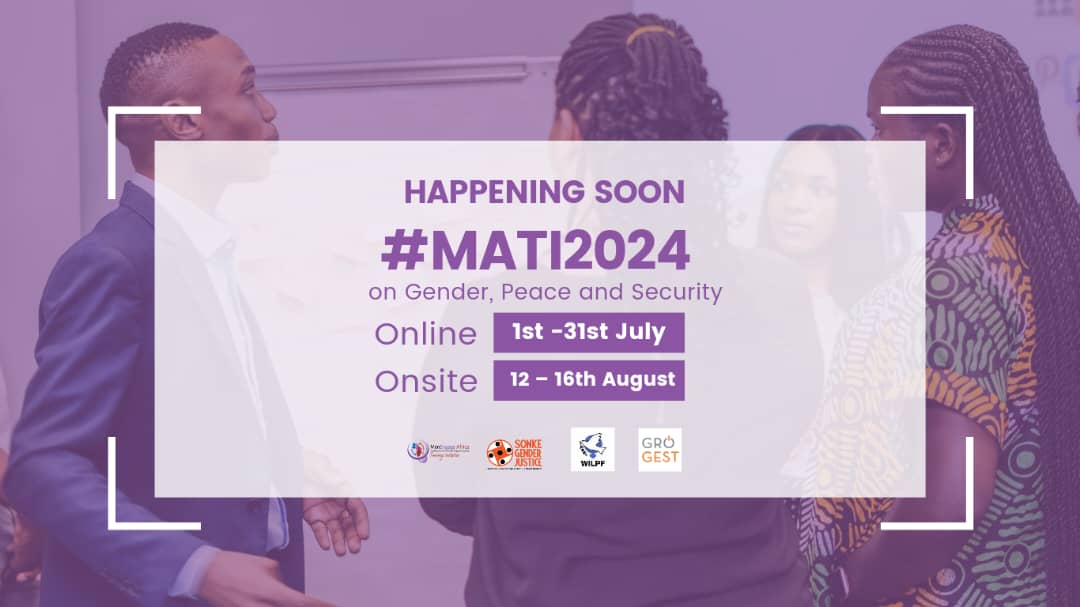The MenEngage Africa and Women International League for Peace and freedom training institute dubbed #MATI2024 On ‘Peace and Security,’ is taking place from 1st to 31st July virtually and from the 12 to 16th August onsite in Nairobi, Kenya. Participants of this training are members of MenEngage Africa and members of Women International League for Peace and Freedom. This training will have a total of 24 participants with fifty percent of the placement reserved for young people under the age of 32, and women.
In partnership with Gender Equality Studies and Training Program of the University of Iceland, the online session will require three hours per week of self-paced learning during which participants will be grounded on the concepts of Gender, Peace and Security, and submit assignments on a weekly basis, thereby fostering a participatory learning approach and self-reflection. The completion of the online course and its assignments is a prerequisite for participation in the in-person component of the course. In case a participant faces challenges in accessing the courses or submitting exercises, the organisers will discuss their case on an individual basis to decide on their in-person participation.
MenEngage Africa Training Institute will introduce participants to thematic around conflict, gender and peacebuilding, the international human rights frameworks to advance the Women Peace and Security agenda, the links between structural drivers of violence and militarised masculinities, the role of male allies in achieving feminist peace, and the opportunities for joint advocacy for feminist peace in Africa. MATI 2024 will pay attention to several regional commitments that offer leverage for change, helping participants to understand and use the AU’s Silencing the Gun Campaign, the AU’s Declaration on Positive Masculinities, UNSCR 1325 National Action Plans across the region, and the commitments many AU member states have made to implement these Human Rights Council Resolution 35-10.
Mati 2024 will be structured as follows:
- Introduction to key concepts
- The gendered dimensions of war, conflict and violence: personal connections and key concepts
- The gendered dimensions of conflict and WPS & root causes
- Root causes and structural drivers of conflict and violence and the peace and security situation in the region
- WPS agenda and peace processes, including challenges to their implementation
- Understanding and using international human rights frameworks to advance the WPS agenda
- International and regional mechanisms and commitments for advancing the WPS agenda
- Planning joint advocacy to advance the WPS agenda in Africa
- Men, masculinities, peace
- Conclusions and next steps
By the end of this training, participants will be expected to mainstream the lessons into their programming and community intervention activities, as well as become more intentional in working with men and boys as allies of feminist peace.


